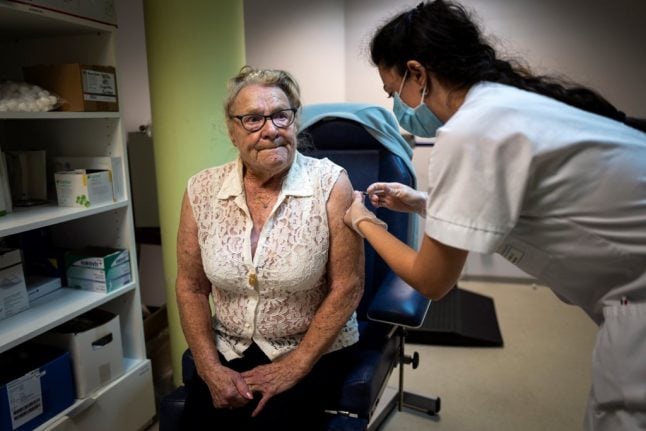Desperate to avoid hospitals facing the combined pressure of flu patients and Covid-19 patients this winter, the French government launched a greatly expanded flu vaccination programme this year, urging anyone in a risk group to get vaccinated as soon as possible.
But demand has far outstripped what the government anticipated, and just a week after the campaign was launched on October 13th, pharmacies across the country are declaring rupture de stock (sold out) of vaccines. Around 60 percent of pharmacies are reporting shortages of flu vaccine.
Gilles Bonnefond, president of the pharmacists union l' Union des syndicats de pharmaciens d'officine (USPO) told France Info: “We have already vaccinated nearly five million people in less than five days.
“This is almost half of what was done all last year during the entire vaccination campaign.”
In 2019 the flu vaccine campaign was expanded and pharmacies were allowed to administer the vaccine for the first time – that year saw just over 10 million people vaccinated, roughly one sixth of the population.
This year, however, take-up has skyrocketed due to the Covid-19 threat.
“Last week, we sold 51 percent of the doses that we sold all last year”, Pascal Fontaine, purchasing director of the Pharmacie Lafayette group, added.
The government is now asking people who do not fall into priority groups to delay their vaccination so that the most high-risk groups can be protected first.
Anyone who is registered in the French health system and falls into a high risk group is usually contacted by their doctor or assurance maladie inviting them to be vaccinated, with a code to present for a free vaccine.
High risk groups are:
- Over 65s
- People with chronic or long-term health conditions
- People with a BMI of 40 or over
- Pregnant women
- People who live with those who cannot be vaccinated, including babies and those who are immunocompromised
However anyone who wants to be vaccinated can be, either by making an appointment with their GP or visiting a pharmacy. For those people the vaccine is free but they will have to pay the standard medical appointment charge for it to be administered.
It is these people that the government is asking to delay getting their jab.
[#Grippe] Cette année la vaccination contre la grippe doit s’adresser en priorité aux personnes les plus fragiles :
?personnes de 65 ans et plus
?personnes atteintes de maladie chronique
?femmes enceintes
?les personnes présentant une obésité sévère… pic.twitter.com/T9IpfvztER— Ministère des Solidarités et de la Santé (@MinSoliSante) October 20, 2020
The government purchased 30 percent more doses than usual this year, but will now have to order more to cover the higher-than-expected demand.
A spokesman for the health ministry said: “We urge people who do not present a particular risk and who would like to be vaccinated, to postpone their vaccination until early December.”
For more details on high risk groups and the payment system, click here.



 Please whitelist us to continue reading.
Please whitelist us to continue reading.
Member comments